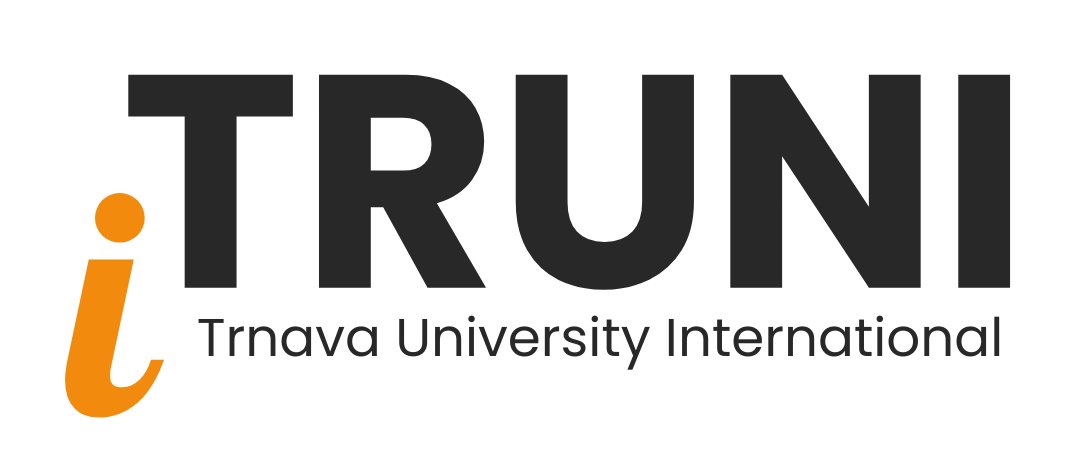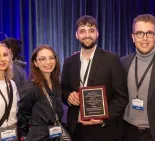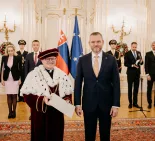From Kenya to Trnava: An Experience that Inspires
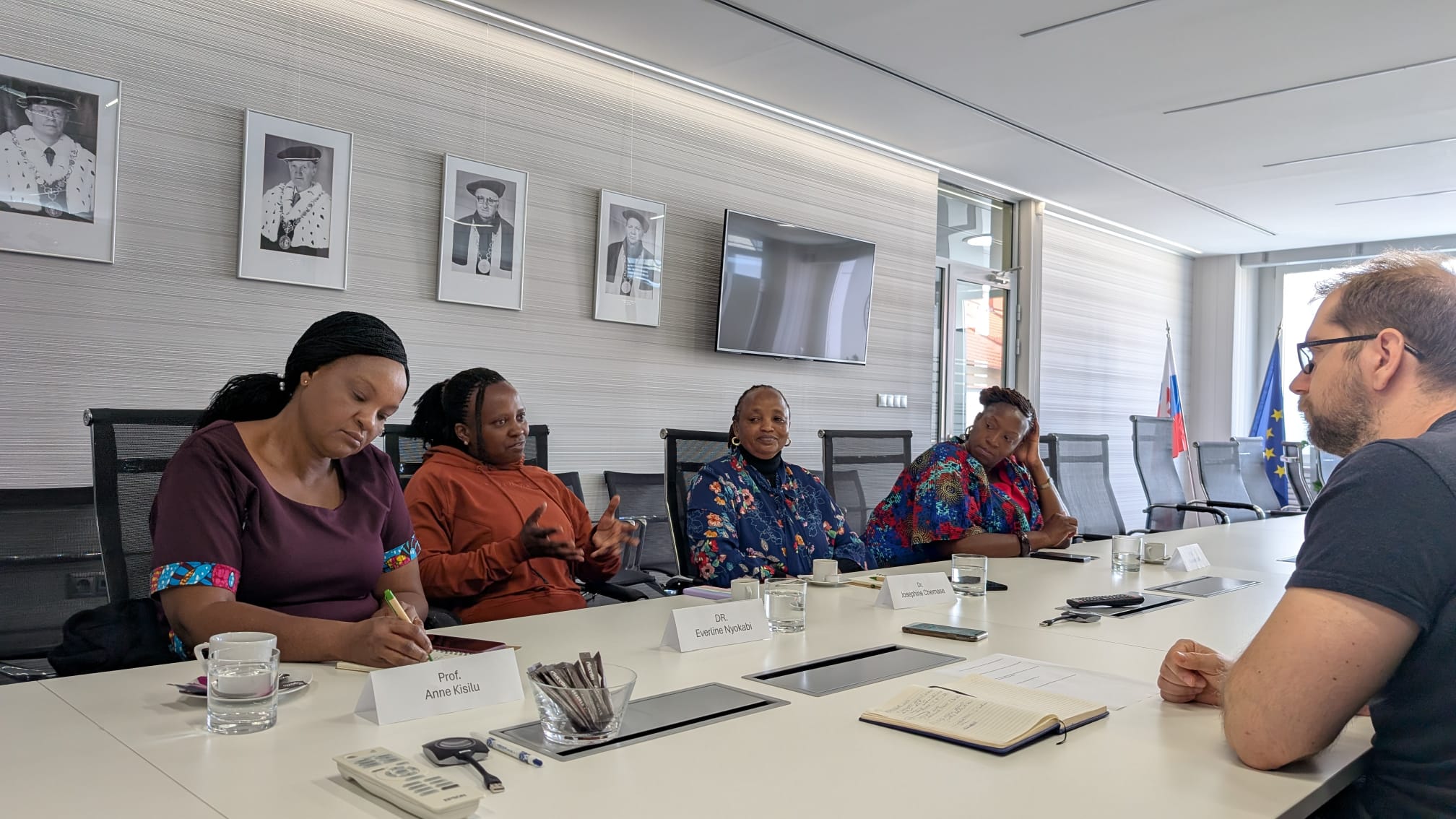
As part of our efforts to strengthen international cooperation and build partnerships with non-European universities, we had the honor of welcoming distinguished guests from Kenya. The Faculty of Education at Trnava University hosted four prominent education experts from leading Kenyan universities: Prof. Maureen Olel, Prof. Anne Kisilu, Dr. Everline Nyokabi, and Dr. Josephine Chemase. During their stay, they took part in several professional meetings, presentations, and discussions with representatives of the Faculty of Education and the university. On this occasion, we asked them a few questions about their academic work, their experience with international collaboration, and their impressions of Trnava.
You’ve been at Trnava University for about two weeks. What were your first impressions of the Faculty of Education?
Prof. Maureen Olel: We arrived during the examination period, but even in that short time, we were impressed by the student-to-teacher ratio, which is very favorable compared to our university. We also visited partner schools and were pleased to see that the head of a kindergarten also teaches at the university. This connection between theory and practice is very valuable.
We also appreciate the openness, professionalism, and approachability of the teachers.
Prof. Anne Kisilu: I was impressed by the content of the study programs. They are modern and student-centered. We visited laboratories that are very well equipped and meet the current requirements for teaching science subjects. We also appreciate the openness, professionalism, and approachability of the teaching staff.
What caught your attention during your visits to kindergartens and primary schools?
Prof. Anne Kisilu: The classrooms are small, which is ideal for early childhood education. The teachers were very well-prepared, and the children worked in groups and independently selected their learning materials — this supports their creativity and problem-solving skills. It was also interesting to see how responsibly and independently the children handled books in the school library.
Dr. Josephine Chemase: I appreciated the communication between the school and the parents. In one kindergarten, they told us about a child with diabetes whose parents were actively involved in school life. In another school, one of the parents even became an assistant. That’s a model we would love to implement back home.
Dr. Everline Nyokabi: What stood out to me was the relaxed and friendly atmosphere. The students appeared confident and actively engaged in lessons. A pleasant surprise was the discipline — students borrowed books on their own and returned them. Compared to our system, it’s less formal, but very effective.
Inclusion was also mentioned. Did you observe how children with special needs are supported?
Dr. Everline Nyokabi: In one of the kindergartens, they mentioned a child with mutism who receives individual support. I would be very interested to learn more about the strategies they use. At a private school, they also had a teacher for gifted children, who are given more challenging tasks – and that is a great approach.
Prof. Maureen Olel: In Kenya, it’s not always easy to give attention to gifted students, mainly due to large class sizes. This is an approach we would like to implement.
Were you also intrigued by new teaching methods, such as the “future classroom” concept? What are your thoughts on it?
Prof. Anne Kisilu: It is a very modern concept. The classrooms are designed for collaboration, making use of technology, and the teaching supports 21st-century skills: creativity, collaboration, critical thinking, and communication. And what’s important—it’s not about expensive solutions, but about a thoughtful and creative approach.
Some of your students described their experience here during the winter semester, if I remember correctly. So I’d like to ask—does what you’ve experienced here over the past two weeks in any way reflect or correspond to what your students shared about their stay? I’m not sure if I’m expressing it clearly. They were here for three months, from September to mid-December, and they felt very welcomed and supported by Mária’s department and the university.
Prof. Maureen Olel: Accommodation and orientation were very good. They were warm, they could get food easily, and that’s important. And I believe we had the same experience. When we arrived, we were welcomed by a very kind student from the Faculty of Law—I think she’s a postgraduate student—her name is Tima. Even how we were received at the airport was smooth; there were no issues. We arrived, got into the car, were taken to the dormitory, and Tima was immediately available to help.
Within an hour, she showed us where to buy groceries, where to eat, and where to go the next day to meet Mária. The support was excellent. And the community in Trnava is very peaceful. The only challenge is the language barrier, but people are very helpful. So yes, I think we experienced the same as our students. But maybe I’ll let the others share their views too.
You don’t have to share only positive things—if there’s anything you’d like to mention or reflect on, please feel free to do so.
Prof. Maureen Olel: Language – language is the only barrier.
Prof. Anne Kisilu: Thank you very much. I’ll just briefly add that our experience is very similar to what our students went through. When we spoke with them after they returned to Kenya, they talked about the warm welcome they received, the dedication of the teachers, and the high-quality resources they saw both at the university and in the schools they visited. They were truly enthusiastic about it. In fact, we were in contact with them during their stay, and if they had the chance, they would love to come back. You are incredibly hospitable—thank you.
Prof. Maureen Olel: It’s not a criticism, but again—the issue is communication, since not everyone here speaks English. It takes more time to figure out how to get to the bus or train station, or where to buy things. For example, I needed an adapter for my charger because in Kenya we use a different type of socket. But Tima was a great help.
And of course, food—it was a question of whether we could find meals similar to what we’re used to back home. Some things yes, some not, so we had to adjust our diet a bit, but we were prepared for that.
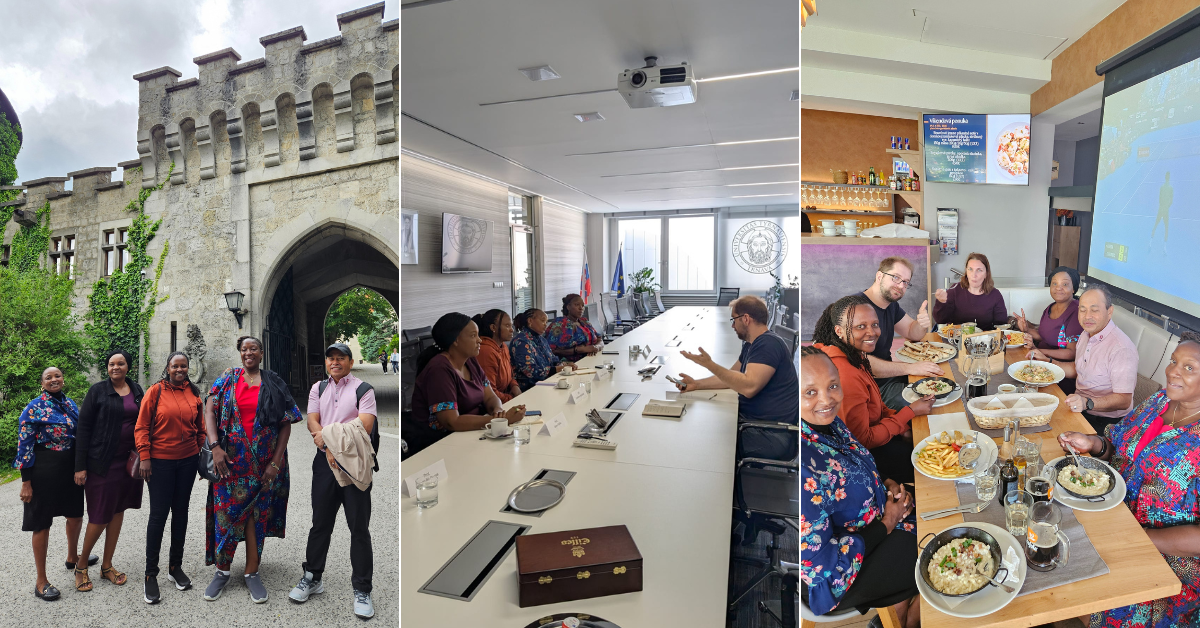
Another question—this one is quite general. You’ve already mentioned some positive impressions, but based on your short experience here at the university, what specifically would you consider positive? Is there anything that inspired you, something you could adopt at your own university or in your programs? What do you think is realistic to implement—something that works well here?
Prof. Anne Kisilu: Thank you very much. We’re taking away a lot from this benchmarking visit, especially regarding improvements to our facilities, resources, and teaching methods—making them more student-centered, engaging, and interactive. We also want to focus more on inclusion and involving stakeholders, as my colleague mentioned. These are areas we aim to bring back and share with our faculty. Another key area is the use of technology in teaching.
As for areas that could be improved here, we heard that the university does not offer a master’s program in English (specifically in the field of English studies). That’s something to consider—creating such a program for international students could attract more people from abroad.
And perhaps I could also mention accommodation. The dormitory is very good, and we enjoyed our stay. But if possible, it would be great to have rooms with slightly larger beds for those who might prefer that. At home, we’re used to sleeping on larger beds, so when we arrived, we were joking: “I hope I don’t fall off during the night when I roll over.” But otherwise, the staff is very kind, we felt safe, the rooms are warm and cozy—it was truly excellent.
Dr. Everline Nyokabi: For me personally, the greatest benefit has been the improvement in teaching methods—rethinking our approach to make it more student-centered, active, and enjoyable. That is something I will definitely take back with me.
I also appreciated the organization and overall environment—the planning, the layout of the offices, the cleanliness—all of it is very motivating. Even though at home it often depends on the availability of resources, it’s still important that the learning environment is pleasant and inspiring, even with limited means.
Dr. Josephine Chemase: And regarding the social aspect, our colleagues encouraged us to go out and experience the community life in Trnava. We were guided by a very passionate tour guide who even took us to the local prison, where there was an exhibition, and he gave us a very insightful explanation about the history of Trnava. He also invited us to visit the local market on Saturday and experience the local food culture.
We were truly impressed. Villagers bring their products directly into the city center, and there’s this beautiful exchange of food. It was wonderful to see how the produce goes straight from the field to the market—like strawberries, colorful and full of flavor, or cherries. Back home, we usually buy this kind of fruit in a store, but here it came directly from local farms. Some plants were even still flowering—you could buy them and plant them in your garden. We really appreciated that.
Even though some of our colleagues said they live in the countryside, our idea of a “village” was very different. When we visited our Kenyan friends who live here, we realized that the “village” is actually a well-developed neighborhood—with schools, churches, and a lovely community. We truly appreciated that. And this sense of community is something we would like to bring back home.
What also really caught our attention were the innovative approaches in early childhood education—how simple materials from the community, like plastic bottles, are used to stimulate children’s creativity. These methods could certainly be an inspiration for Africa as well.
History is deeply intertwined with the university, and that’s something that should never be forgotten—how the University in Trnava came to be. Your history helps shape your future. While things may change, it is important to remember and honor that legacy.
Prof. Maureen Olel: What I personally appreciated about the university—and found very important—was seeing how Trnava has grown into a true city, not just the “Little Rome.” History is deeply connected to the university, and that’s something that should not be forgotten. How the university in Trnava was established is part of that legacy. Your history helps shape your future. While things do change, it’s crucial to remember and reflect on your roots.
We also appreciated that your university is closely linked to the Church, much like our university in Maseno, Kenya, where missionaries founded a church, hospital, and school back in 1901. That’s something we share in common.
What areas could we improve as a university or a faculty in order to grow? Did we meet your expectations, or was something missing? How can we become more competitive in the field of international mobility or education quality?
Prof. Maureen Olel: Universities have three core missions: teaching, research, and community engagement. Teaching at Trnava University—especially at the Faculty of Education—is of a high standard, and we are pleased to be collaborating with you.
However, research is an area where there is still room for growth. We observed a lack of research activity and publishing, which are essential components of a strong university environment. This is an area where we see great potential for closer cooperation.
Another important point is the international visibility of master’s and doctoral programs. If these programs are offered in English, they could become highly attractive to students from around the world—including Kenya. This would create opportunities not only for your students to study abroad, but also for ours to come here, fostering true academic exchange.
Programs in fields such as law, education, public health, or social work have strong potential. If developed well in English, they could have a significant impact.
Dr. Everline Nyokabi: Trnava has real potential in this area, but there is still room for improvement—particularly in teacher training for working with children with special needs, especially when it comes to early intervention in pre-primary education.
Prof. Anne Kisilu: We would welcome opportunities to connect research across various faculties, not just with the Faculty of Education.
Prof. Maureen Olel: In the future, it would be helpful to have a slightly more structured program for visiting guests. At the beginning of our stay, we lacked a clear plan of what we could visit or participate in. Thankfully, our students who had already studied here helped us get oriented. Without them, it would have been more difficult due to the language barrier.
We are grateful to the faculty leadership and Trnava University—especially to Professor Branislav Pupala, who has been a true ambassador. He represents the university excellently both at home and abroad, and we now consider him “almost Kenyan.”
